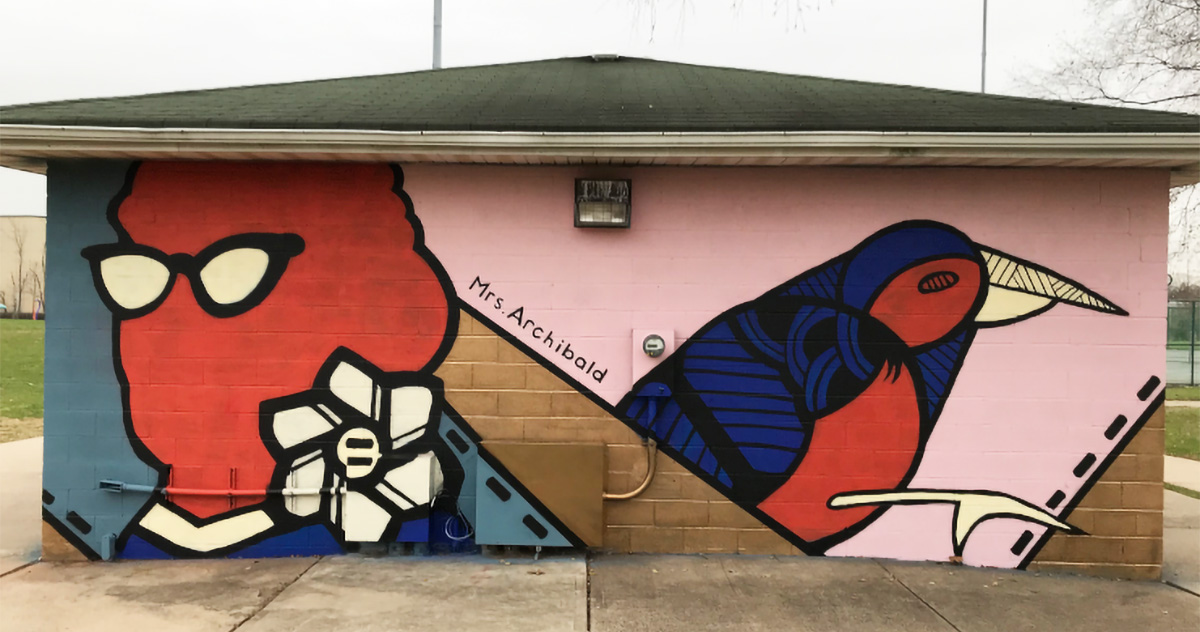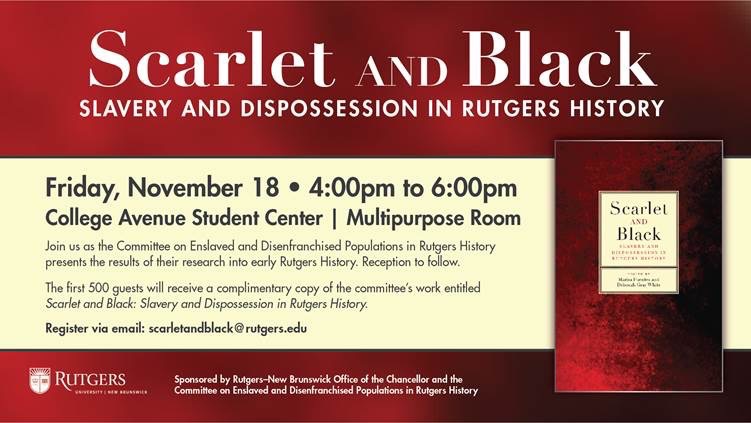The local arts organization coLAB Arts has created a mural series in Alice Jennings Archibald Park in New Brunswick. The work celebrates the legacy of Mrs. Archibald in relation to the students of McKinley Community School. The mural draws inspiration from Mrs. Archibald’s motto: “It is better to light a candle than curse the darkness.” Designed by local artist RH Doaz, the mural aims to convey Mrs. Archibald’s values: educational rigor, community service, and social justice.
The Scarlet and Black Project provided research support for the mural series through our archival digitization project in collaboration with the Mount Zion AME Church of New Brunswick. We invite you to explore the new digital collection Alice Jennings Archibald History Library Records (Mount Zion AME Church of New Brunswick) to learn more about Mrs. Archibald’s life.

On January 29, 2021, coLAB Arts and the City of New Brunswick held a virtual unveiling of the new mural series, with Scarlet and Black Postdoctoral Associate Alexandria Russell participating as one of the speakers. The event was streamed live on Facebook, and you can view the video recording. The event includes oral history content speaking to the life of Alice Jennings Archibald from the point of view of her family and an interview with the artist, RH Doaz.
Check out the local press coverage of the new mural:
- Mural Honoring New Brunswick’s Alice Jennings Archibald to Be Unveiled Friday in TAPinto New Brunswick
- New Murals Popping Up Around New Brunswick in New Brunswick Today




